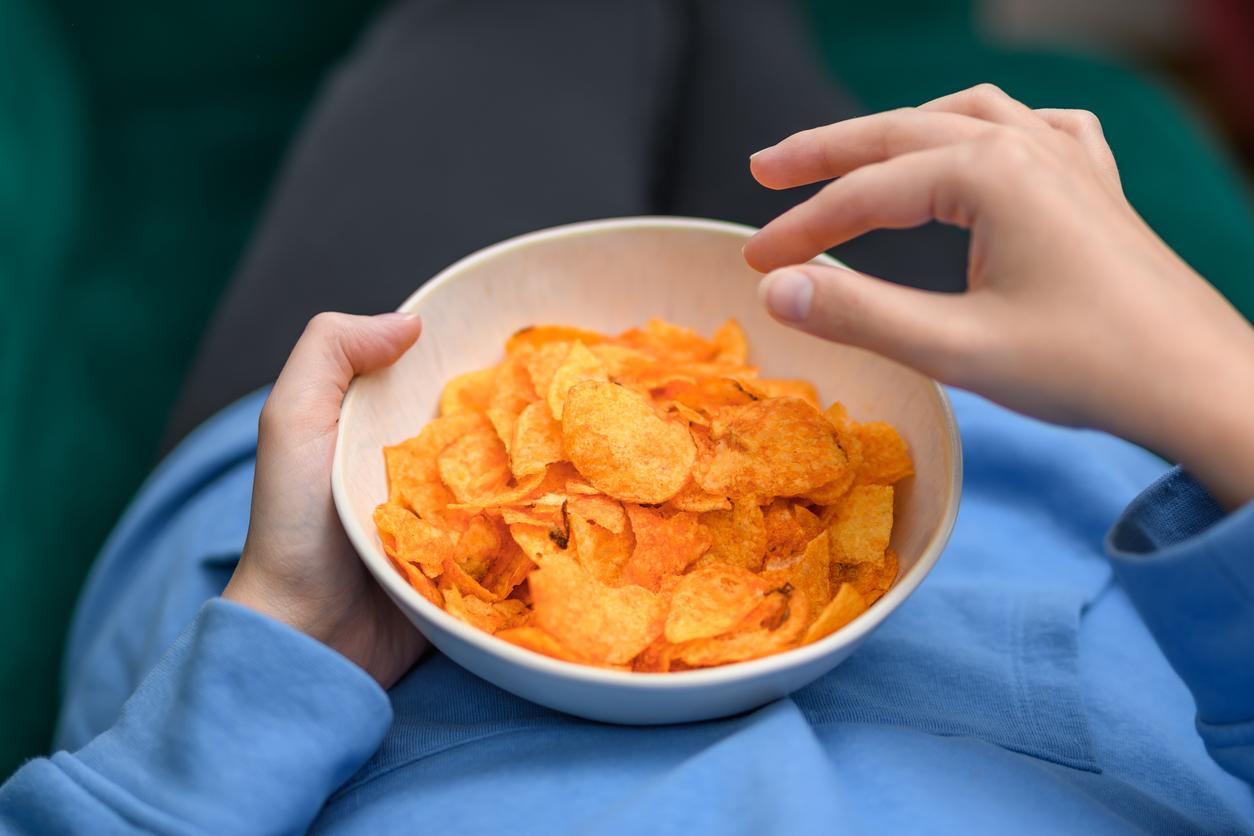If we already know the consequences of a diet too rich in bad fats on health, Belgian and French researchers believe they have been discovered where our irrepressible desire to put our hands in the package after the first crisps comes from. In their research, published in the journal Nature Communications this Monday, January 28, they describe the role of an enzyme in the intestine essential in regulating appetite, which malfunctions in the event of a diet that is too fatty.
NAPE-PDL, an essential enzyme
When we eat, satiety messages are carried by this famous enzyme, called “n-acyl phosphatidylethanolamine phospholipase D” or more simply “NAPE-PDL”. Produced by the intestine, this substance is responsible for transmitting saturation signals to the brain. Anorectic neurons are thus activated in the hypothalamus, and stop food intake. But in the case of a diet that is continuously high in fat, the activity of NAPE-PDL decreases. The intestine-brain axis is altered, and appetite control is deregulated.
To reach these conclusions, the researchers carried out work on mice lacking this enzyme. They realized that by exposing these rodents to a high-fat diet, they couldn’t stop eating, and therefore ate more than normal rodents exposed to the same diet. They were becoming obese and were developing a foie gras.
Towards new therapeutic treatments
Thus, scientists believe that overweight or obese people could suffer from a dysfunction of this NAPE-PDL enzyme. ” We have […] put your finger on a key mechanism in the regulation of metabolism. This will not prevent overweight or obese people from eating, but it helps to explain why they are always hungry, and to look for solutions ”, Explain To BFMTV Patrice Cani, professor at the Catholic University of Louvain (UCL) who participated in the study.
This discovery could indeed open the way to new therapeutic treatments to fight obesity. The molecules produced by the enzyme could be administered to patients to reduce their appetite. Solutions could also be developed to prevent the degradation of the substance or to reactivate it.
“As part of our study, we injected the Akkermansia bacterium, which makes it possible to restore the dialogue between the intestine and the brain. A start-up is trying to develop this track. She hopes to offer a food supplement within 3 years ”, announces Patrice Cani. This bacterium would in fact be able to modulate the production of bioactive fatty acids, without going through the enzyme.
Read also :
- Junk food in France: a report for the future
- Fat and sugar, your liver’s enemies
















